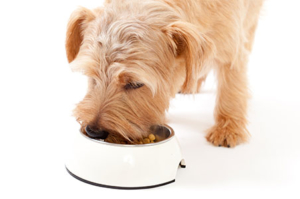
I know that, as a practicing veterinarian, discussing dog food diets can sometimes be a thorny issue. Clients can have strong opinions about what to feed their dogs, either by extrapolating their own dietary beliefs or conditions to their dogs (vegetarian, gluten intolerant…), or that proposed by the media, breeder, pet store owner. Clients often seem overwhelmed by the array of options in the pet dog food aisle, often feeling guilted into purchasing the most expensive, organic, natural, frozen or raw, or homemade diet they can get their hands on.
I am here to tell you what I believe. I hope that it will put your mind at ease. There are many good food options, most of which are a dry, balanced kibble. I recommend asking your vet which diets they recommend. And… remember the following Food Rules for Dogs.
1. The term ” natural” doesn’t tell you much.In AAFCO terms, natural pet foods only means that nothing chemically synthesized , except for vitamins, is added. The word natural does not imply better (cyanide is natural!), or even minimal processing. Thus, natural pet food can still be processed and rendered and full of chicken feet from China. Don’t buy a food just based on that word without actually reading the label.
2. Most dogs don’t need a low carb diet.
High performance dogs may benefit from the additional protein and or fats in low carb food. I am talking dogs that run Iditarods, etc. The average dog, though, will just get fat eating those diets. Also, many senior pets benefit from protein restriction, while others have gastrointestinal diseases that do better on low fat diets.
3. Most dogs do not need a grain free diet either.
The majority of food allergies are not to grains or glutens. With the exception of one subset of dogs ( certain Irish Setters), it is not proven to exist. And let’s not confuse grain free with low carb. They are two different things. Potatoes, a common grain free source of carbs, has a higher glycemic index than brown rice and are in many grain free kibbles.
Besides, dogs are fine with carbs.
And, there are current studies that have established a link between certain grain free diets and the development of a life threatening form of heart disease, called Dilated Cardiomyopathy (DCM). It is being seen in breeds not normally predisposed to the disease, and seems to be associated with a taurine deficiency. Taurine is an amino acid, and is one of many essential nutrients that are lacking in grain free diets. The take home message: if your veterinarian and you have, together, determined that your dog needs a grain free diet, discuss whether or not there is supplementation that your veterinarian would recommend. If not medically indicated, and you are purchasing grain free because you or someone in a pet store recommended you do so, reconsider. You may be actually be doing more harm than good.
The current list of brands associated with DCM
https://www.cnn.com/2019/06/28/us/dog-food-linked-to-canine-heart-disease/index.html
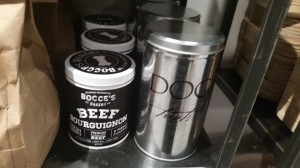
4. Back to food allergies
Allergies are very common in dogs. Seasonal allergies that is.
Of all cases of allergies, food allergies only comprise 10% of them.
The 5 most commonly diagnosed allergies are: beef, dairy, chicken, lamb and fish. NOT GRAIN.
Again, unless your dog is an Irish Setter, it is very unlikely that they are allergic to grain.
5. There is no one ideal food for your dog.
Anyone who says there is one and only one brand of dog food that is best for your dog, is lying. There are many options, some better than others, that you can get for an affordable price.
If your dog does not like a certain diet, try another one. This is a very large industry, with many good choices available. By all means, if a prescription diet is recommended by your vet, try it. If your breeder, or someone you run across in a pet food store, tells you that you need to feed something, consider the source. The gold standard on advice is to consult with a veterinary nutritionist. They exist, and I had the pleasure of hearing a lecture this very weekend. She and I are not getting kickbacks from any companies. She and I are in agreement that, companies with established products on the market, for years, with good quality control are safer than newer, potentially trendy diets, that haven’t stood the test of time to determine whether or not they are on my list of recommended diets. We, as a profession, are hoping to make your pet healthy and happy, and to live longer. This, in turn, makes you happy, which makes us happy….
6. If your dog is overweight, try to resolve it before worrying about corn and byproduct meal content of the diet.
My point is, you should be more concerned about the deleterious effects of obesity on your dog than the fact that a prescription weight loss diet has corn, or something similar in it.
I hate to say it, but dogs, for the most part, become overweight because clients feed them too much. Too much of a good, corn free, food, will cause bad things (obesity).
I have had many clients prefer to give their dogs a weight loss medication, with it’s many side effects, than to simply give them less food. It is really not that complicated. They are getting more calories than they need.
More exercise and less calories will result in weight loss. Certainly rule out the possibility of hypothyroidism, which is occasionally a factor in obestiy. And then either cut down the amount of old diet you were giving, and treats, or go ahead and buy the diet kibble. Hopefully, that will be a temporary situation. Once the weight is off, go back to whichever diet he or she prefers. Just less of it.
***Please note: It is not my intent to speak against home cooking your dog’s food, or feed raw food diets, etc….I may not advocate it personally, because I think that it is more complicated than most people realize to get a properly balanced diet for various life stages. If you choose to make your pet’s meals, my advice, as said above, is to consult with a diet formulated by a veterinary nutritionist.
Hopefully you found this information helpful.
Dr Dawn The Pet Vet
Please share and subscribe here
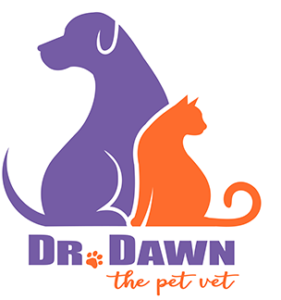
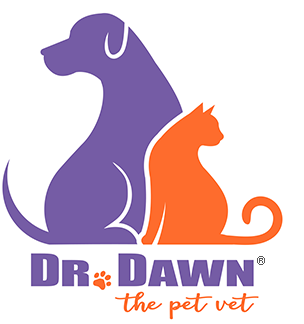
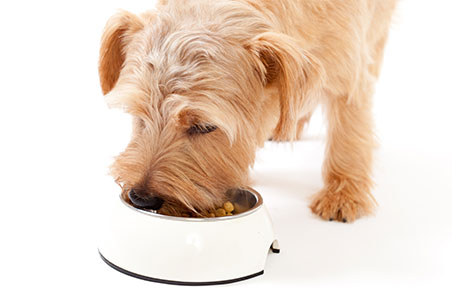

Hello There. I discovered your weblog using msn. This is an extremely smartly written article.
I’ll be sure to bookmark it and come back to learn more of your useful information. Thanks for the post. I will definitely return.
Thanks for sharing your thoughts. I really appreciate your efforts and I am waiting for
your further write ups thanks once again.
Hello Dr Dawn! I was on Faith’s email string and read your blog, I love it! Thanks for all the great info.
I was wondering about foods, my shihtzu Bella has recently become very gassy. Everything else with her is fine, normal eating, bowel movements, she has been eating the same food for at least 3 years (dehydrated venison).
I just recently bought “gas busters” that has parsley & slippery elm, it’s seemed to help, but not eliminate the issue.
Any advice?
Thanks!!
Tina
Tina,
Thanks for your comment. I am not able to give specific advice on this site, as I have not actually seen Bella. But, I think I can safely say the following, which is that I have not used nor recommended “gas busters” personally for clients, although I have reports that it does occasionally help.
My advice would be to consider getting her a fecal to make sure that she does not have parasites. Contacting your regular veterinarian before you do so would be good, because they know her best and might recommend something else as well.And, it looks like she possibly has food allergies, so you want to verify that she is not getting into anything else, indoors or outdoors.
Good luck, and I am curious if the gas busters works in your case, or how it all turns out. I will try to post info regarding this, and welcome any other thoughts or ideas that you would like more info on. I appreciate your comment as well.
Dr. Dawn